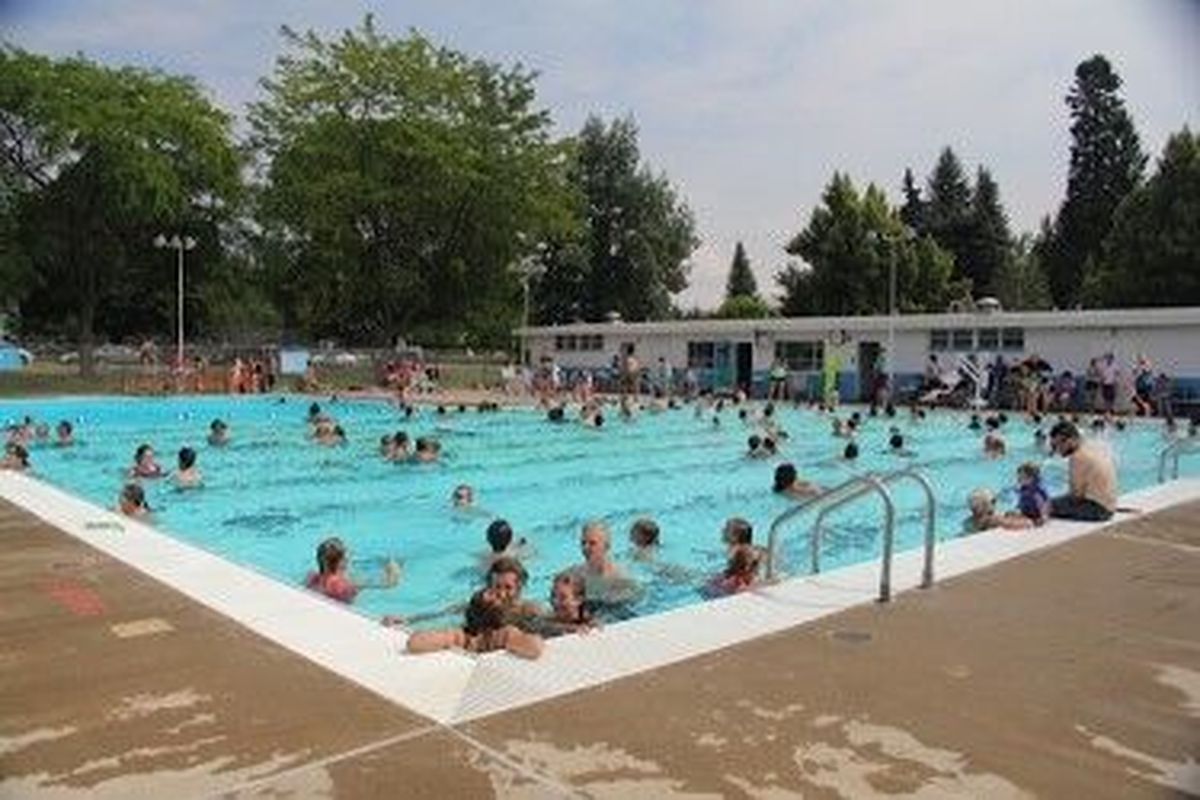City of Cheney is waiting for voters to OK bond for a new $13 million aquatics center

Cheney residents looking for a place to cool down will have the chance to vote for a new tax to replace the city’s shuttered pool.
The Cheney City Council is asking voters on the Aug. 1 primary for a property tax to pay for a new $13 million aquatics center.
Cheney’s city pool has been closed since 2020, first due to COVID-19, and then due to a mechanical failure. Instead of repairing the facility, the city would demolish the vacant pool, and build a new one in its place.
“The old one’s dead,” said City Councilman Paul Schmidt. “The repairs that we were confronting after we did a study and analysis, it was far more cost-effective to build a new aquatic facility than trying to keep placing Band-Aids on the old one.”
The previous pool is nearly 60 years old, and has been well used by the Cheney community.
“It was a magnet for all the youth in the community on the hot summer days,” Schmidt said.
The property tax would be an estimated 53 cents per $1,000 of taxable property value, costing the owner of a $400,000 property $212 a year.
Cheney City Administrator Mark Schuller said the general obligation bond will take around 30 years to pay back, but the time frame could be shortened if the city is able to secure additional funding such as grants.
“We’re looking at all angles to try to take down the total $13 million and lessen the burden on the taxpayers,” Schuller said.
The proposed aquatics center would include a lazy river, water slide, lap pool – where activities such as swim lessons could take place – and a zero-entry pool for easier access for children and those with physical impairments.
The Cheney City Council decided on these amenities after receiving over 500 responses to community surveys.
“It was it was overwhelmingly high in terms of public engagement,” said Councilman Vincent Barthels.
“That’s how we sort of came up with a preliminary design for what the pool could look like, trying to honor the community’s wishes on the types of things they wanted to see in a new pool,” Schuller said.
Though an exact price hasn’t been decided yet, the city would charge citizens to use the pool to help pay for the operational costs of the aquatic center. Schmidt explained that the new pool will cost more to operate than the old one.
“It’s a little larger, and we have a little more need for personnel,” he said.
According to an operations analysis report presented to the council in March, the pool would cost around $540,000 per year to operate and have an estimated yearly revenue of about $423,000. Revenue generated by the pool, including fees, are expected to pay for 78% of the operations costs, according to the city.
Schmidt and Barthels are confident in public support of the pool, but are worried about a low voter turnout during the summer primary. Not only will the measure need to reach 60% support to pass, voter turnout must be at least 40% of that of the previous election.
“I think a bulk of the community would support it, I just don’t know if there’s going to be enough voter turnout,” Barthels said.
Schuller encouraged voters to return their ballots.
“I would just encourage everyone to get out and vote. No matter how they feel about the bond, just get out there and vote,” he said.